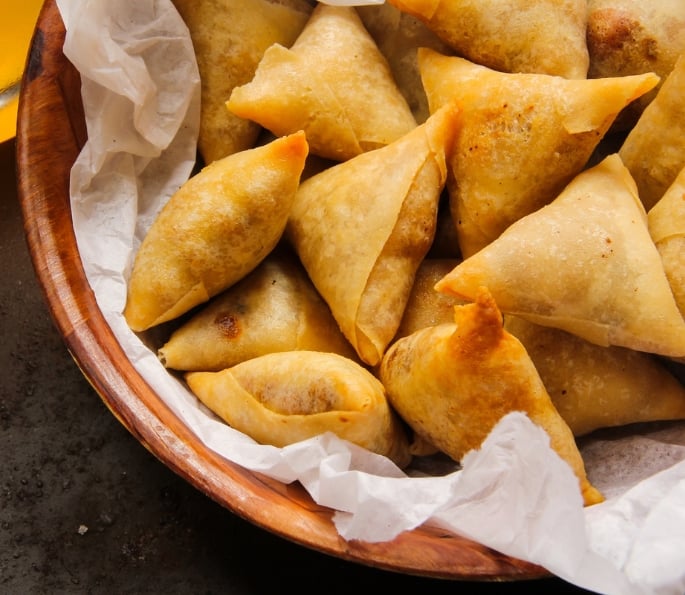In Desi culture, food is a love language.
The rise of obesity across South Asia, including India and Pakistan, has reached alarming levels.
In the 21st century, lifestyle shifts driven by urbanisation, globalised food markets, and sedentary habits have increased obesity rates.
Once perceived as an issue of affluent Western nations, obesity has become a significant public health challenge in Desi communities.
This epidemic is not only a matter of aesthetics but a serious health concern linked to conditions like diabetes, cardiovascular diseases, and organ damage due to visceral fat.
Addressing obesity requires understanding the cultural and lifestyle habits that contribute to it, as these are deeply ingrained and often celebrated in the fabric of Desi societies.
High-Calorie, Oil-Rich Foods
 Traditional Desi cuisine, while flavourful and cherished, is often laden with oil, butter, and ghee.
Traditional Desi cuisine, while flavourful and cherished, is often laden with oil, butter, and ghee.
Popular dishes like biryani, parathas, and halwa are not only calorie-dense but also lack the balanced nutrition needed for healthy living.
Excessive use of refined carbohydrates like white rice and maida (refined flour) further compounds the issue, leading to insulin resistance.
While these foods are central to social gatherings and family meals, their frequent consumption in large portions adds to the caloric surplus.
Unfortunately, many consider these dishes a marker of hospitality, making it culturally challenging to refuse or limit intake.
To combat this, it’s crucial to adopt healthier cooking techniques, such as using less oil and incorporating more whole grains and vegetables.
Sedentary Lifestyle
 Urbanisation has brought a wave of desk jobs and long hours of screen time, significantly reducing physical activity levels.
Urbanisation has brought a wave of desk jobs and long hours of screen time, significantly reducing physical activity levels.
Desi households also have a cultural preference for convenience and comfort, often discouraging outdoor activities and relying on domestic help for physical tasks.
In addition, the rise of digital entertainment has led to increased screen time for children and adults alike, replacing active leisure with passive habits.
Over time, this lack of movement contributes to poor metabolism, weight gain, and related health issues.
Encouraging family-based physical activities like evening walks, yoga sessions, or even traditional games can help reverse this trend while fostering community bonds.
Excessive Consumption of Sugary Drinks and Snacks
 Sugary chai, soft drinks, and mithai (sweets) are staples in Desi households and celebrations.
Sugary chai, soft drinks, and mithai (sweets) are staples in Desi households and celebrations.
Beverages like lassi and packaged fruit juices, often marketed as healthy, are loaded with hidden sugars.
Combined with deep-fried snacks like samosas, pakoras, and namkeens, these indulgences significantly increase daily calorie consumption.
While these treats hold cultural significance, their overconsumption has led to rising obesity rates, especially among children and adolescents.
Switching to healthier alternatives, such as unsweetened herbal teas or fresh fruits, can help maintain the cultural connection without compromising health.
Late-Night Eating Habits
 Dinner, the heaviest meal in many Desi households, is often consumed late at night due to long work hours and family schedules.
Dinner, the heaviest meal in many Desi households, is often consumed late at night due to long work hours and family schedules.
This habit disrupts the body’s natural circadian rhythm and reduces the efficiency of digestion and metabolism.
Late-night snacking, a common practice during social gatherings or while watching television, exacerbates the problem by adding extra calories that are not burned off before bedtime.
Over time, this leads to fat accumulation, particularly around the abdomen.
Adopting an earlier dinner schedule and limiting heavy meals close to bedtime can support healthier digestion and weight management.
Cultural Pressure to Overeat
 In Desi culture, food is a love language, and refusing food is often perceived as rude or ungrateful.
In Desi culture, food is a love language, and refusing food is often perceived as rude or ungrateful.
Hosts insist on second and third helpings, and phrases like “ek aur roti le lo” (have one more) are common.
This social pressure leads to overeating, often against one’s hunger signals.
Additionally, celebratory events such as weddings and festivals encourage indulgence in rich, high-calorie dishes.
While it’s essential to preserve the warmth and hospitality of these traditions, finding polite ways to decline excess food and emphasising portion control can make a significant difference.
The Desi lifestyle is a beautiful blend of traditions, flavours, and family values, but certain habits have inadvertently contributed to the obesity epidemic.
High-calorie diets, sedentary routines, sugary indulgences, late-night meals, and cultural overeating are some of the key factors driving weight gain.
Addressing these issues doesn’t mean abandoning our roots; instead, it calls for mindful modifications that align with both health goals and cultural practices.
By adopting balanced diets, encouraging physical activity, and fostering healthy eating habits, we can work towards a healthier future for Desi communities.
The fight against obesity starts at home—with small, consistent changes that pave the way for a stronger, more vibrant society.






























































